Estate Planning FAQ's
We get lots of questions about estate planning.
Here are the most frequently asked questions we receive along with some helpful tips at the end:
What is the difference between a will and a trust?
A will instructs the probate court on how you want your assets distributed at the time of your death. A trust states how the money shall be managed, including when people receive the money and how they can spend the money.
What are the benefits of a trust?
Parents are able to provide instruction on how the assets for their children are managed and at what ages their children will receive the assets.
Probate is avoided. People have quicker access to the assets of a trust, and most importantly, the attorney fees and court costs of probate are avoided. Attorney fees for a trust are usually lower than the cost of probating assets.
Avoiding probate also means the opportunity for people to challenge how the money is to be divided is also avoided.
Heirs may be protected in the event of debt collection or divorce.
An irrevocable trust allows for the reduction of taxes and protection of assets.
I have named a beneficiary on all of my accounts. Do I still need to have a will or trust?
Yes, for unforeseen circumstances. Your named beneficiary may predecease you or you may acquire assets in the future in which you may not have the opportunity to designate or change the beneficiary.
Can I just pay for a will or trust on-line?
Most people benefit from having someone assist them with creating a plan that is unique for their personal situation to offer the best possible protection for their heirs.
When will my agent for my durable power of attorney have authority to act on my behalf?
With a durable power of attorney it is immediate. With a springing power of attorney you have to be incapacitated before your agent has the authority to act on your behalf. Most people have a durable power of attorney.
Can my agent for the durable power of attorney override the executor?
The agent for the durable power of attorney only has authority to act while you are alive. Once you pass, the agent for the durable power of attorney no longer has any authority to act on your behalf. The executor only has authority once you pass.
When will my agent for my healthcare power of attorney have authority to act on my behalf?
They will only have the authority to make decisions on your behalf if you are unable to do so on your own.
If I have a living will stating I do not want life-sustaining treatment, does that mean I will never be on a ventilator or use a feeding tube?
No. A living will is in reference to life-sustaining treatment prolonging the process of dying. Ventilators or feeding tubes may be used on a temporary basis to help a patient live.
What if the beneficiary is under the age of 18?
You have a few different options:
In the absence of any special clauses or other planning provision for minors, their share of the estate will go into a guardianship account which will be administered by the Probate Court. A guardian will be appointed and they will be responsible for managing the minor's estate until the age of 18. The guardian will have to file reports, including receipts for all disbursements from the account. Besides the substantial time the guardian will have to spend, there will also be court costs and attorney fees. The child will receive the full distribution once they are 18 years old.
The will can also authorize the share of a person under the age of 21 to be distributed to a custodian account known as the Uniform Transfer to Minors Act, (UTMA). A person is named as the custodian to manage the property for the child. There are no reporting requirements and no reason to incur attorney fees. The custodian may use the funds in the account for the benefit of the child as they see fit. The child will receive the full distribution once they are 21 years old.
The other option is for the money to be distributed according to the terms of a Trust. The terms of the Trust are flexible and you can state whatever you wish concerning an age for distribution. It is common for the funds to be distributed at in different percentages at different ages. Only a trust allows you to determine the age in which the money would be distributed.
Is a trust the only way I can avoid probate? No, other options include:
Joint and survivorship property
(POD) pay on death accounts
(TOD) transfer on death
There may be a downside to each of these options, so ask an attorney what is best for you.
Some helpful hints:
Make sure your agents for your durable and health care power of attorney have access to the documents in the event you are unable to retrieve them.
Make sure your agent for your health care power of attorney has a picture of your driver’s license, insurance card, primary doctor’s name, and a list of the prescriptions you are taking. This is particularly important when you are traveling out-of-town.
